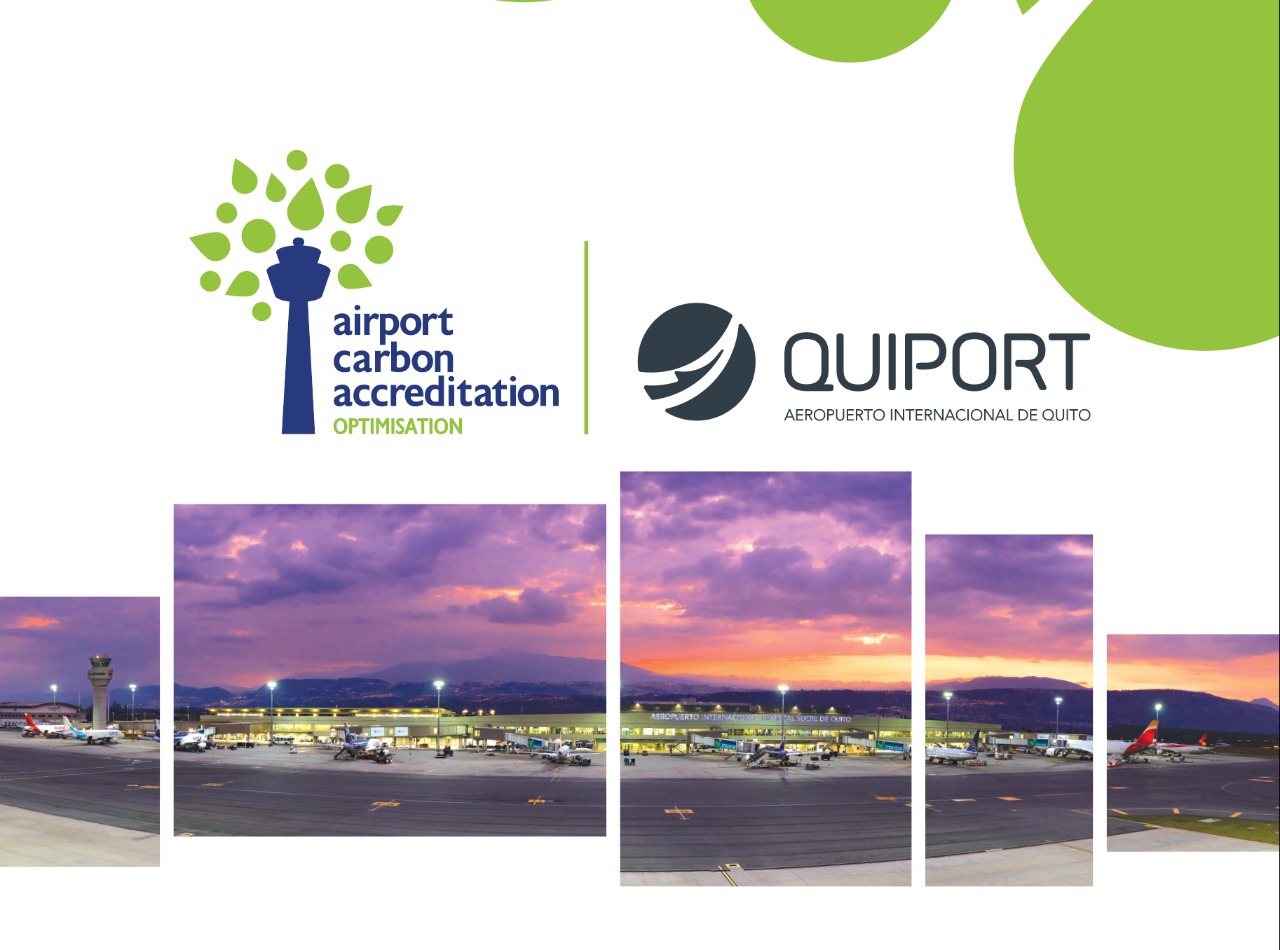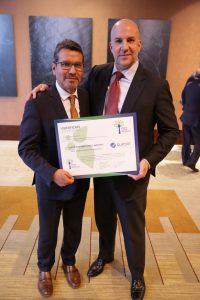ECUADOR’S FIRST ECOLOGICAL CLUSTER IS ESTABLISHED IN TABABELA

- Some 15 private companies connected to the aviation industry have pooled their environmental management experiences and commitments to create the first cluster to optimize their processes. Their aim is to reduce their carbon footprint and consolidate a sector that grows while respecting the planet. These efforts have been recognized by Airports Council International (ACI) which awarded Level III Optimization certification to Mariscal Sucre International Airport, Quito (MSIA) for promoting this initiative.
Improve aircraft operating procedures, gradually replace conventional lighting with LED technology, use the least amount of packaging in export cargo processes, make use of recyclable materials, construct and operate wastewater treatment plants; all of these are among the commitments agreed by 15 private companies and Corporación Quiport, the entity that manages the capital’s airport and which last week was awarded Level III Certification of the Airport Carbon Accreditation program by Airports Council International.

“Our commitment to Quito and Ecuador is to offer an airport with efficient operations and sustainable development. The magnitude of climate change is such that individual actions to mitigate impacts must be expanded to include far-reaching movements to achieve a notable influence” says Andrew O’ Brian, President and CEO of Corporación Quiport. “To achieve this goal, the airport and the 15 companies that have joined the shared purpose will invest approximately USD 500,000 to be used to perform specific commitments” he explains.
According to ACI Latin America, 16 airports are part of its Airport Carbon Accreditation program. Of these, Mariscal Sucre Airport is the second after the Galapagos to obtain Level III Optimisation which involves including other industry stakeholders in efforts to reduce CO2 emissions. The first cluster (group of interconnected companies in a particular industrial sector who collaborate strategically to obtain common benefits) has been created around the airport with the aim of developing joint and powerful actions to halt climate change.
To obtain this recognition, MSIA first passed Level I which required carbon footprint measurement and Level II which is focused on reduction. The goal now is to reach Level IV – Neutrality which requires neutralizing remaining direct carbon emissions by offsetting.
According to Quiport’s data, during Level III certification, the Airport’s carbon footprint has been reduced by 4%, meaning that in the past year 819 tons of emissions have been saved.
The specific commitments of the members of the cluster are varied. For example, LATAM and Tame will work to improve their aircrafts’ operating procedures and route monitoring systems. Avianca has agreed to gradually replace its lighting with LED technology. Servipallet (air cargo pallet service), Petroamazonas Hangar, Swissport EMSA, Meramexair, DK Terra and Pertral (pallet services) have also set themselves this objective.
Goddard Catering Group, in charge of preparing on-board meals, has set a goal to build and operate a wastewater treatment plant and KFC Group will continue its campaign to reduce plastic and encourage proper waste management. Hotel Wyndham aims to use solar panels to provide hot water at its facilities and Novacargo will install motion sensor lights in it its service areas.
This way, the region’s best airport is paying attention to global changes and offers innovative solutions to help improve the quality of life of Quito’s residents and Ecuadorians.
